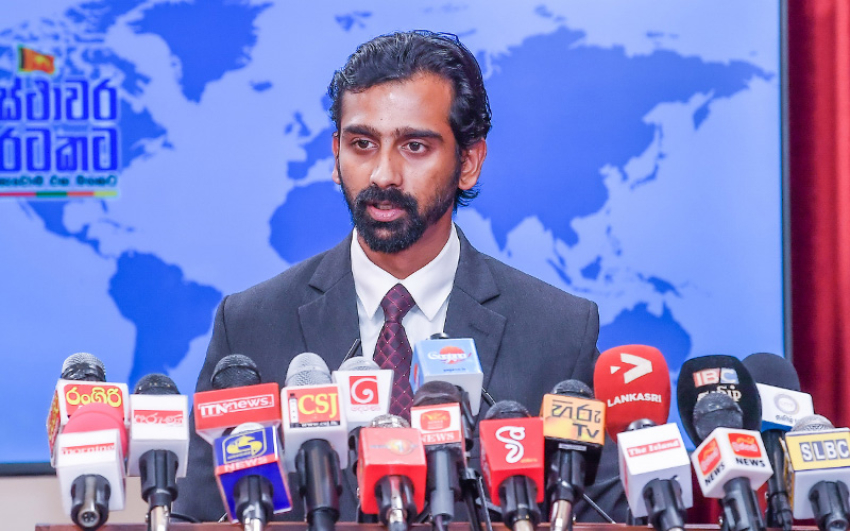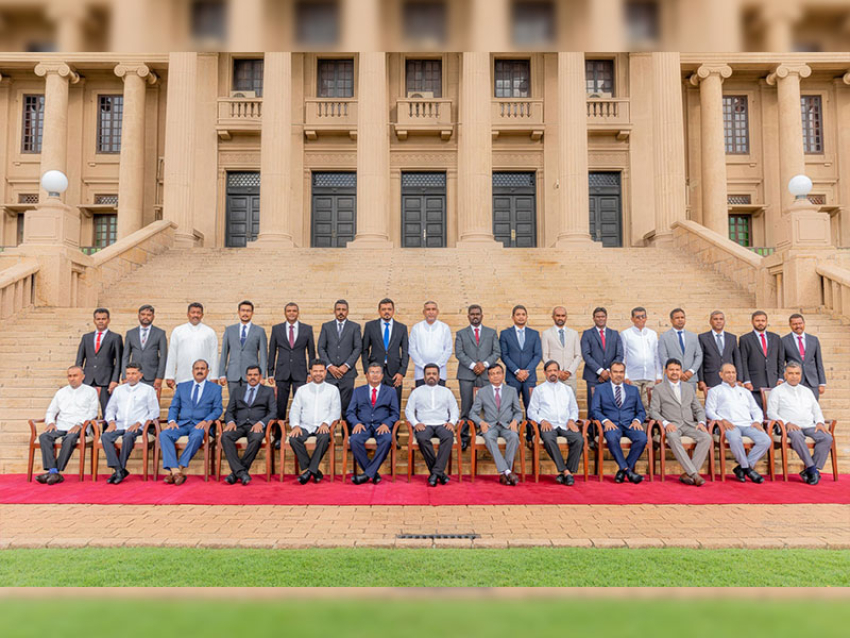The Minister also highlighted that the Water Supply Board, previously experiencing a monthly loss of LKR 2.8 billion, has now achieved a profit of LKR 6.2 billion.
Minister of Water Supply and Estate Infrastructure Development Jeevan Thondaman made these remarks during the ‘Collective Path to a Stable Country’ press briefing yesterday (17) at the Presidential Media Centre (PMC).
Minister Jeevan Thondaman, elaborating further, also stated:
We commend Minister Kanchana Wijesekera for initiating steps to lower electricity tariffs. The water supply sector is closely tied to electricity tariffs, making it likely that this revision will also lead to reduced water tariffs.
Water availability is influenced by various factors. We previously committed to lowering water tariffs in tandem with reductions in electricity charges. Currently, the Ministry is not only focusing on electricity but also assessing the impact of reduced interest rates, down from 26% to 11%. Additionally, we are studying the potential reduction in water tariffs based on changes in the dollar exchange rate. It’s important to note that the cost of chemicals procured by the water supply board is influenced by the dollar exchange rate.
It is expected that by the end of this week, a decision will be made regarding the extent of the reduction in the water tariff. When I assumed office in January 2023, the Ministry faced challenges, unable to even provide 1,000 new water connections. Moreover, I inherited a Ministry burdened with an USD 800 million debt and a Water Supply Board experiencing monthly losses of approximately LKR 2.8 billion. The board’s monthly recurring expenses of LKR 4.5 billion had a significant national impact.
Since then, we have delivered on our commitments. The number of new water connections has increased to 113,000, with plans to add approximately 30,000 more connections in the coming weeks.
Furthermore, we have successfully transformed the Water Supply Board’s monthly loss of LKR 2.8 billion into a monthly profit of LKR 6.2 billion. It is noteworthy that with a recurring expenditure of LKR 4.5 billion, we have ensured the sustainability of the water supply sector by allocating the surplus towards debt servicing.
Through the Ministry of Power and Energy, we secured a USD 100 million policy-based loan from the Asian Development Bank (ADB). Similarly, preparations are underway for a sub-programme within the water supply sector. Cabinet approval has been obtained for the final two issues of the ADB’s reform proposals: the water tariff formula and the investment framework criteria. Upon approval by the Asian Development Bank Executive Board, an additional USD 100 million is anticipated.
Moreover, we are committed to safeguarding vulnerable and economically disadvantaged communities from the impact of water tariffs. Measures have been implemented to provide subsidies to hospitals, schools, and religious institutions classified as charitable entities.
We are also pleased with the success of the “Aswasuma” program and the President’s focus on increasing wages for plantation workers and granting land rights. The Upcountry communities have gained confidence in the President’s initiatives. Despite challenges faced by Upcountry communities, we are optimistic about the direction we are heading. Today, many longstanding issues affecting Upcountry communities have been resolved.
Next month, discussions will be held with the Ministry of Industries and Estate Companies aimed at finding a lasting solution to the plantation workers’ wage issue. Furthermore, in response to our longstanding request, the President submitted a cabinet paper on land rights last Monday. In Upcountry areas where numerous families reside, there is often only one Grama Sewa Officer, leading to inadequate distribution of government welfare benefits. This is exacerbated by historical land demarcation issues affecting Upcountry residents.
These challenges have impeded the development of Upcountry communities. To address this, the President’s cabinet paper proposes formally recognizing Upcountry areas as villages. Additionally, there is widespread agreement that priority should be given to providing housing rights to Upcountry people. Securing land rights enables individuals to build homes, fostering community development.




















